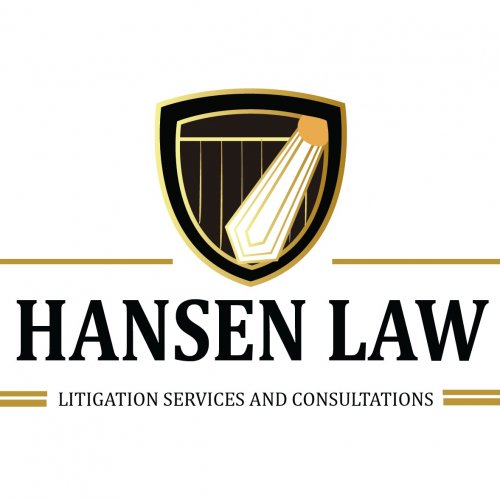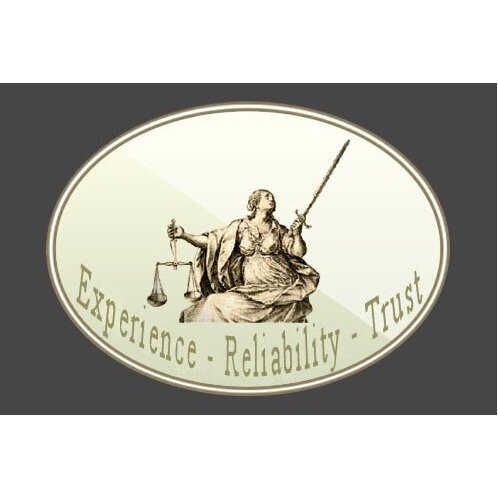Best Elder Abuse Law Lawyers in Pattaya
Share your needs with us, get contacted by law firms.
Free. Takes 2 min.
List of the best lawyers in Pattaya, Thailand
About Elder Abuse Law in Pattaya, Thailand
Elder abuse is a significant concern in Thailand, including in the city of Pattaya, a popular destination for both retirees and foreign nationals. The legal framework regarding elder abuse in Thailand has been evolving to provide better protection and legal recourse for the elderly. In Pattaya, as part of Thailand's broader jurisdiction, elder abuse laws are designed to safeguard the rights and dignity of older adults. The legal definitions typically cover physical, emotional, and financial abuse, as well as neglect and abandonment. Authorities aim to ensure the safety, well-being, and respect of elderly individuals through various legal measures and support systems.
Why You May Need a Lawyer
There are several situations where you might require legal assistance regarding elder abuse in Pattaya, Thailand:
- Suspected Abuse: If you suspect an elderly person is being abused, a lawyer can help navigate the complexities of the legal system to report and address the issue.
- Victim Support: Lawyers play a crucial role in supporting elder abuse victims, helping them secure protective orders, and providing guidance on legal rights.
- Financial Exploitation: Elderly individuals can sometimes be victims of financial scams or exploitation; legal professionals can help in recovering assets or litigating claims.
- Institutional Abuse: If abuse occurs in a care facility or nursing home, a lawyer can assist with appropriate legal actions against the institution.
- Family Disputes: In cases where family members are the abusers, legal intervention may be necessary to resolve personal and financial disputes.
Local Laws Overview
Thailand has several laws and regulations that are pertinent to elder abuse, some of which are enforceable in Pattaya:
- Penal Code: The Penal Code of Thailand includes provisions against physical and emotional abuse, applicable to elder abuse situations.
- Domestic Violence Victim Protection Act: This act provides measures for protecting victims, including elders, from domestic violence.
- Senior Citizens Act: This act stipulates the rights and welfare of elderly individuals and empowers agencies to take necessary protective actions.
- Civil and Commercial Code: Important in addressing financial exploitation, this code governs transactions and relationships that can be crucial in financial abuse cases.
- Legal Empowerment Center: Pattaya has legal resource centers that assist in understanding local laws and provide guidance for actionable steps.
Frequently Asked Questions
1. What constitutes elder abuse in Pattaya, Thailand?
Elder abuse encompasses physical harm, emotional mistreatment, neglect, financial exploitation, and abandonment of anyone aged 60 and above.
2. What should I do if I suspect elder abuse?
Contact the local police or a specialized legal agency for elder abuse. Consulting a lawyer experienced in elder abuse is also advisable.
3. Are there specific protections for elderly foreign nationals in Pattaya?
Yes, foreign nationals also receive protection under Thai law, and international embassies may assist if their citizens are involved.
4. Can I report suspected elder abuse anonymously?
Yes, reports can be made anonymously, though providing contact information can help authorities follow up if necessary.
5. How quickly is action taken after reporting elder abuse?
The response time can vary based on the evidence provided and the immediacy of the threat. Authorities prioritize urgent cases.
6. What legal outcomes can result from elder abuse cases?
Legal outcomes may include arrest, prosecution, financial restitution, and restraining orders against the abuser.
7. Can an elder refuse help or legal oversight?
If an elder has full mental capacity, they can refuse legal intervention. However, if incapacitated, a court-appointed guardian may decide.
8. What role do doctors and social workers play in elder abuse cases?
Healthcare providers and social workers play crucial roles in identifying and reporting potential cases to the authorities.
9. How can I legally protect the assets of an elder from exploitation?
Legal mechanisms like power of attorney, trusts, and guardianship can be established to protect an elder's assets from exploitation.
10. Are there support groups for elder abuse victims in Pattaya?
Yes, there are support groups and community organizations that offer counseling and support for elder abuse victims in Pattaya.
Additional Resources
For more support and information, consider reaching out to the following organizations:
- Thai Ministry of Social Development and Human Security: Provides resources and support for elderly welfare and protection.
- The Pattaya Police Department: Handles immediate threats to safety and relevant legal proceedings.
- Local Non-Governmental Organizations (NGOs): Many NGOs in Pattaya focus on elder welfare and may provide legal assistance.
- Consular Offices: Foreign nationals can seek help from their consulate for legal guidance and support.
Next Steps
If you need legal assistance concerning elder abuse in Pattaya, Thailand, consider the following steps:
- Consult a Lawyer: Seek a lawyer who specializes in elder law or has experience dealing with abuse cases for initial advice.
- Gather Evidence: Document any signs of abuse, including photographs, medical records, and financial statements.
- Report the Case: Report the suspected abuse to local authorities or elder abuse hotlines promptly.
- Seek Support Services: Engage with community resources or support groups for victim assistance.
- Consider Legal Action: Proceed with legal actions like filing a lawsuit or obtaining a restraining order if necessary.
Lawzana helps you find the best lawyers and law firms in Pattaya through a curated and pre-screened list of qualified legal professionals. Our platform offers rankings and detailed profiles of attorneys and law firms, allowing you to compare based on practice areas, including Elder Abuse Law, experience, and client feedback.
Each profile includes a description of the firm's areas of practice, client reviews, team members and partners, year of establishment, spoken languages, office locations, contact information, social media presence, and any published articles or resources. Most firms on our platform speak English and are experienced in both local and international legal matters.
Get a quote from top-rated law firms in Pattaya, Thailand — quickly, securely, and without unnecessary hassle.
Disclaimer:
The information provided on this page is for general informational purposes only and does not constitute legal advice. While we strive to ensure the accuracy and relevance of the content, legal information may change over time, and interpretations of the law can vary. You should always consult with a qualified legal professional for advice specific to your situation.
We disclaim all liability for actions taken or not taken based on the content of this page. If you believe any information is incorrect or outdated, please contact us, and we will review and update it where appropriate.















